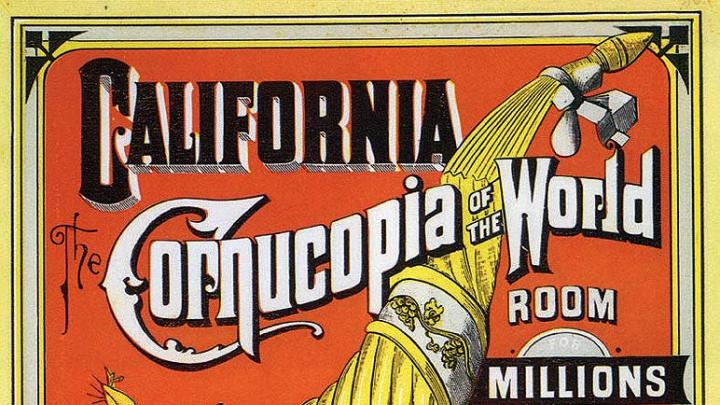The City-State of Boston: The Rise and Fall of an Atlantic Power, 1630-1865, by Mark Peterson ’83, Ph.D. ’93 (Princeton, $39.95). An immense, fresh history of the “city upon a hill” conceives of the place as an independent city-state that was absorbed into the new country that arose around it. Boston’s current moment—at once privileged and peculiar—suggests the value of considering its distinctive past in light of powerful, imaginative scholarship, in the deft hands of the author, now at Yale.
Unruly Waters, by Sunil Amrith, Mehra Family professor of South Asian studies (Basic, $35). Another fresh history, this one on a continental scale, offers possibly grave warnings for the present. The subtitle, “How rains, rivers, coasts, and seas have shaped Asia’s history,” may remind readers of earlier hydrological approaches to understanding the governance of the most populous part of Earth. Now, says Amrith (Harvard Portrait, September-October 2017, page 19), a rush to dam the Himalayas and slake urban thirsts portends environmental tragedy and conflict.
A Lot of People Are Saying: The New Conspiracism and the Assault on Democracy, by Russel Muirhead and Nancy L. Rosenblum (Princeton, $26.95). What happens to democratic discourse when conspiracy theories are unanchored to theory or the presentation of alleged fact: when they become mere speech acts, boldly amplified? The result is disorienting and dangerous, warn Muirhead, now at Dartmouth, and Rosenblum, whose last work before she assumed research-professor status at Harvard featured in “The Democracy of Everyday Life” (September-October 2016, page 50).
First: An Intimate Portrait of the First Woman Supreme Court Justice, by Evan Thomas ’73 (Random House, $30). The indefatigable author presents another in a series of fluidly written, leaderly biographies—this time, of Sandra Day O’Connor (2009 Radcliffe Institute medalist), “the most powerful…justice of her time.” Her nomination, by Ronald Reagan in 1981, and service (through 2006), seem of an era and a spirit a full millennium, and not just a few decades, ago.
The Shape of a Life, by Shing-Tung Yau, Graustein professor of mathematics and professor of physics, with Steve Nadis (Yale, $28). A personal memoir by the acclaimed geometer, winner of the Fields Medal and National Medal of Science, Crafoord Prize, etc. Though the result is mostly accessible, the subtitle (“One mathematician’s search for the universe’s hidden geometry”) is fair warning of the underlying, mind-worrying problems in string theory, black holes, and other challenges.
Permanent Revolution: The Reformation and the Illiberal Roots of Liberalism, by James Simpson, Loker professor of English (Harvard, $35). A scholar of late medieval and early modern European literature teases out how the evangelical English Reformation (intolerant, stridently literal, immersed in predestination) touched off a culture of permanent revolution and came to underlie liberalism (free will, liberty of conscience, and so on). Academic, but approachable.
Separate: The Story of Plessy v. Ferguson, and America’s Journey from Slavery to Segregation, by Steve Luxenberg ’74 (Norton, $35). Most writers don’t make a living dwelling on moments of infamy and shame, so it took a veteran journalist to discover an obvious, important narrative: the precedents and people who led the Supreme Court, in 1896, to bless a “separate but equal,” segregated society—for which the dues are still being paid.
The Club: Johnson, Boswell, and the Friends Who Shaped an Age, by Leo Damrosch, Bernbaum professor of literature emeritus (Yale, $30). The acclaimed biographer of Swift, Blake, Rousseau, and others now delivers a group portrait of the extraordinary “Club” revolving around a circle of astonishingly brilliant late-eighteenth-century friends (also: Gibbon, Adam Smith, Burke…) whose work, lives, and ideas resonate still.
The Poems of T. S. Eliot: Collected and Uncollected Poems, edited by Christoper Ricks and Jim McCue (Farrar, Straus and Giroux, two volumes, paperbound, $30 and $25). A door-stopping compendium, with staggeringly voluminous textual history and commentary, justified by the staying power of the poetry by Eliot, A.B. 1910, Litt.D. ’47. For those who really want to know and cherish their T.S.E.
Two-Buck Chuck and the Marlboro Man, by Frank Bergon, Ph.D. ’73 (University of Nevada, $24.95). A novelist and writer on the American West escorts readers from elsewhere through the actuality and imagery of California’s San Joaquin Valley (with its very diverse population) amid change, cultural and otherwise.
Immigration and Democracy, by Sarah Song ’96 (Oxford, $34.95). Speaking of California and diverse populations, a Berkeley professor of law and political science examines the philosophical and moral vocabulary for discussing the movement of peoples that gets beyond, and beneath, heated, but facile, rhetoric about “open” or “closed” borders. “We may not reach agreement on a single solution to the challenges of immigration,” Song writes, “but…we can identify the basic principles that an acceptable solution must satisfy.” The day for doing so seems a long way off—but when it comes, it will be well to have this kind of disciplined thinking available.









